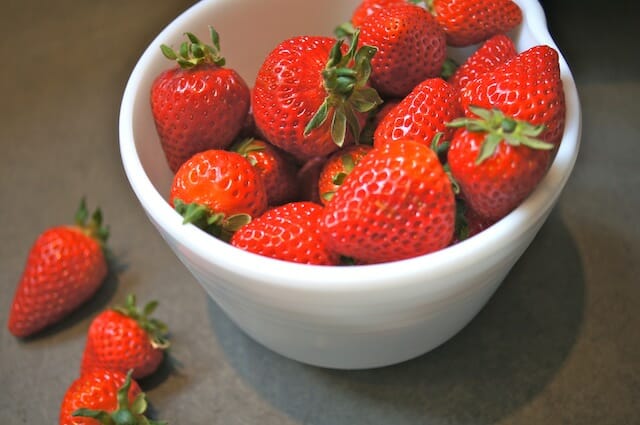I promised a loyal reader I would tackle the topic of GMOs, but then another loyal reader asked me to weigh in on the findings of a new study from Stanford about organics. Both issues are complicated, with experts on both sides playing fast and loose with the facts…kind of like politicians on different ends of the spectrum as election day approaches.
Since the organics study was just been released yesterday, I’ll address that first. GMOs soon, I promise.
After examining some 250 studies worldwide comparing organic versus conventional foods, researchers at Stanford University found very little difference in vitamin and mineral content between the two. They also found that although the pesticides in non-organic produce were significantly higher than organic, the levels remained largely within federal safety guidelines.
What does this mean?
To me, very little.
Does it change my stance that organic is preferable?
No.
Vitamins and minerals aren’t why most of us buy organic in the first place, it’s concern over pesticides and chemical fertilizers used to grow non-organics. And although the study found pesticides fall within government standards, plenty of folks consider those standards, well, substandard, particularly for pregnant women and childen.
And there are other issues at hand, such as the impact of chemicals on water runoff and how that affects fish and wildlife. And how about the people who live and work in farming communities exposed to pesticides on a daily basis? I do wonder about the health implications for them.
Does that mean I buy all organic all the time?
No.
Do I recognize organic produce is out of reach for some families?
Absolutely.
In a perfect world we’d all have access to affordable, farmer’s market-fresh organics, but non-organic fruits and veggies are not the root of American dietary ills. It’s misguided to malign the likes of a conventionally grown eggplant or non-organic head of lettuce, especially in light of all the junk food filling the interiors of our supermarkets.
And while I do worry about the impact of chemicals on farming communities, I also wonder what it’s like to make a living running a farm. I sat in on a talk by a very earnest strawberry farmer just last week who grows both conventional and organic berries. He said much of his land isn’t conducive to growing organics and that turning a profit isn’t so easy. At the same time, he’s come to apply some of his know-how from growing berries organically to his conventional crops. That’s good news since it may ultimately mean less pesticides for conventional produce.
My takeaway from all of this continues to be twofold: 1) Eat lots of fruits and vegetables 2) Make them organic as much as you can. When you can’t, be vigilant about cleaning your produce since a thorough washing can decrease pesticide residues significantly. Peeling your fruits and vegetables can help too.
Beyond that, I find the Dirty Dozen and Clean 15, which have become a permanent fixture on the homepage of my blog, to be useful when it comes to making decisions about whether or not to shell out the big bucks for organic. It’s not a perfect tool, but it’s the best we’ve got.
